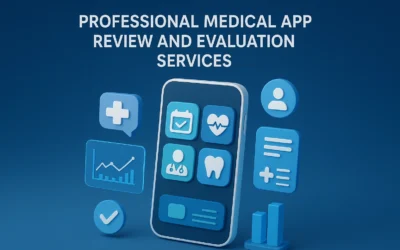In the digital age, enterprises face a critical decision: should they opt for convenient cloud services or invest in custom-built solutions? While cloud platforms offer scalability and ease of use, there are compelling reasons why enterprises should consider developing custom solutions, particularly when it comes to data security, data ownership, and compliance.
1. Data Security: Control and Protection
Data security is a top priority for enterprises handling sensitive information. Custom solutions provide unparalleled control over security measures compared to cloud-based alternatives.
Benefits of Custom Data Security:
- Tailored Security Protocols: Custom solutions allow enterprises to implement security measures that align precisely with their specific requirements. This includes encryption standards, access controls, and intrusion detection systems tailored to the unique risks faced by the organization.
- Reduced Third-Party Risks: By developing an in-house solution, enterprises minimize reliance on third-party vendors, reducing the risk of data breaches that can occur due to vulnerabilities in cloud providers’ infrastructure.
- Regular Security Audits: Custom solutions enable regular security audits and updates, ensuring that the system remains protected against emerging threats and vulnerabilities, without waiting for a third-party provider to implement necessary changes.
Example:
A financial institution can develop a custom software solution with advanced encryption techniques and multi-factor authentication, tailored to meet the industry’s stringent security requirements, ensuring that sensitive client data is safeguarded from unauthorized access.
2. Data Ownership: Retaining Control
Data ownership is a crucial aspect of enterprise operations. Cloud services often entail relinquishing control over data storage and management, posing significant risks.
Advantages of Custom Data Ownership:
- Full Data Sovereignty: Custom solutions ensure that enterprises retain full control over their data, deciding where and how it is stored, processed, and accessed. This eliminates concerns about data residency and sovereignty that often accompany cloud solutions.
- Granular Access Management: Enterprises can define precise access controls, ensuring that only authorized personnel can access sensitive information. This level of control is often limited in cloud environments.
- Data Portability and Flexibility: With a custom solution, enterprises have the flexibility to migrate data between systems or modify data structures without being constrained by a cloud provider’s limitations.
Example:
A healthcare organization can develop a custom solution to manage patient records, ensuring that all data remains within the organization’s secure servers, fully compliant with data residency requirements and providing complete control over access and management.

3. Compliance: Meeting Regulatory Standards
Regulatory compliance is a non-negotiable aspect of enterprise operations, particularly in industries such as finance, healthcare, and legal services. Custom solutions offer the flexibility needed to meet these stringent requirements.
Compliance Benefits of Custom Solutions:
- Customized Compliance Features: Enterprises can build solutions that align with specific regulatory requirements, such as GDPR, HIPAA, or PCI-DSS, incorporating necessary features like audit trails, data anonymization, and consent management.
- Adaptability to Regulatory Changes: Custom solutions can be quickly adapted to comply with new regulations or changes in existing laws, ensuring ongoing compliance without the dependency on a third-party provider’s timeline.
- Comprehensive Reporting: Custom solutions provide the ability to generate detailed compliance reports, demonstrating adherence to regulatory standards and facilitating audits.
Example:
A legal firm can develop a custom case management system that includes features such as detailed audit logs and secure document storage, ensuring compliance with industry-specific regulations and providing peace of mind to clients.
Conclusion
While cloud services offer convenience and scalability, enterprises must carefully consider the long-term implications of relying on third-party providers for their critical data and operations. Custom solutions provide unmatched advantages in terms of data security, ownership, and compliance, empowering enterprises to maintain control and ensure that their systems align perfectly with their strategic goals and regulatory obligations.
By investing in custom development, enterprises not only protect their sensitive information but also position themselves for greater flexibility and resilience in a rapidly changing digital landscape. For organizations prioritizing security, control, and compliance, custom solutions represent a strategic choice that aligns with their core values and operational objectives.











